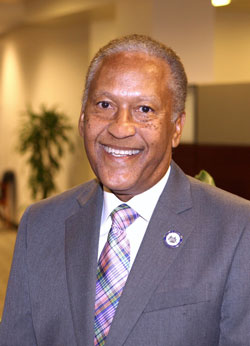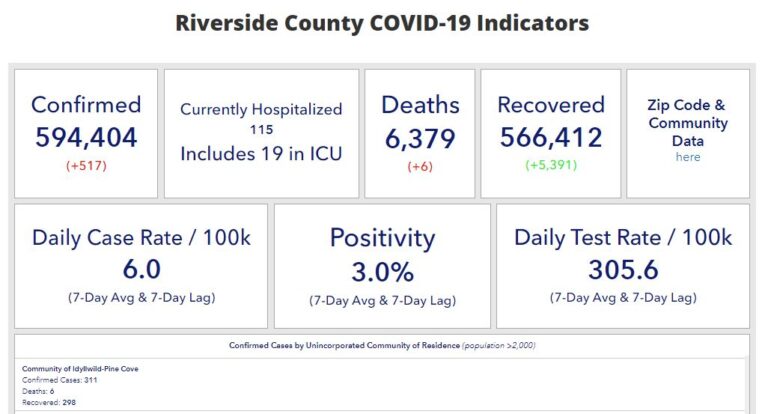Renovating and improving the facilities at the County’s Ben Clark Training Center opened an extended discussion on the larger funding needs that the County will encounter in the near future.
The specific action item was approval of $5 million for the Riverside County Sheriff’s Department to undertake the next step in identifying the appropriate improvements to make the Training Center satisfy the training needs of many first responder agencies.
The U.S. Air Force deeded the land to the County to be used for law enforcement and emergency management response training. A multitude of agencies take advantage of the facilities, even though many classrooms are still mobile trailers and few improvements have been made since its opening in the middle of the 1990s.
The users include the Riverside County Sheriff’s Office, Fire Department, Emergency Management Department, Code Enforcement, and the Transportation and Land Management Agency. Other users include the California Highway Patrol and the Riverside Community College District.
Supervisor Kevin Jeffries (1^(st) District), who is leaving the Board in January, raised an alarm about the potential long-term fiscal troubles. To build a modern and state-of-the-art training facility could cost between $500 million and $700 million, Jeffries estimated. He was hesitant about his forecast and admitted that there were a lot of variables still unknown to put a specific cost on the project. But this is not the only high-cost item on the Board’s horizon, he advised his colleagues.
“We have labor agreements in the place now that are being debated and discussed,” he began. “A ballpark estimate is these labor agreements will cost the county close to $500 million over the next 24 to 36 months. Pension costs are increasing every year and there are the Wellness Village and behavioral health hospitals.”
“My point is that we are continuing down the path toward the Ben Clark Training Center, that I don’t think we can afford,” he warned the Board and opined that the total costs could range from $1 billion to $1.5 billion or greater.
He did not want approval of this planning step to mean approval of the total costs to undertake the major rebuilding at the expense of other important County programs. Jeffries recommended that the County Executive’s Office prepare a long-range financial plan that would help guide the Board on these approaching significant and expensive projects.
County Executive Officer Jeff Van Wagenen told the Board that this phase of the planning process would provide information on “. . . ultimately what we can do at the Training Center and potential what that would look like costing.”
But he stressed that the Ben Clark facility was not now meeting the needs of its intended training purpose.
Both he and Under Sheriff Don Sharp emphasized that this planning step was necessary to arrive at a position to make a legitimate “go or no go” decision.
Remon Tadrous, the Sheriff’s Project Management Office Director, also stressed that the facility’s age (nearly 30 years) had created a large backlog of deferred maintenance.
Ending the discussion, Sharp emphasized that the results from this phase would help to intelligently answer Jeffries questions about the total costs to improve Ben Clark Training Center.
Initially Supervisor V. Manuel Perez (4^(th) District) agreed totally with Jeffries’ point about deferring this project but after hearing the staff’s response, he changed his mind and thought this step is needed to understand what the full future costs may be.
“This will allow us to know what the future of the Training Center will cost and to get in position to do the analysis,” he said.
Board Chair Chuck Washington (3^(rd) District) said he shared Jeffries’ concerns about future funding, but added, “. . . you got to take that first step on the path to get where you want to go. We have to evaluate this.”
The Board did unanimously approve the $5 million for this phase of the project planning. It is expected to take a year to complete once the contract is issued.
During this phase, some of the work to be completed is consultation with electrical and gas utilities, a coordinated microgrid feasibility report, field investigations, an aerial topographic survey, and analysis of existing drainage.






